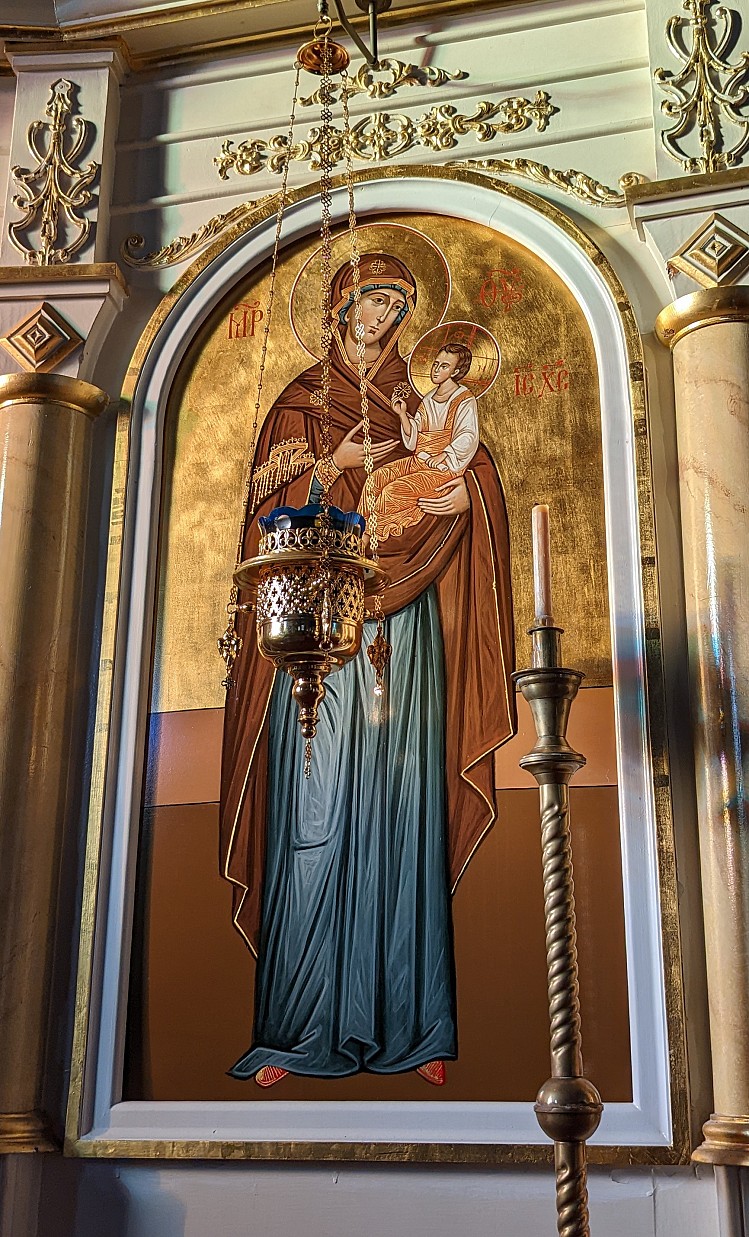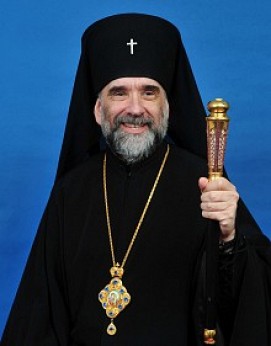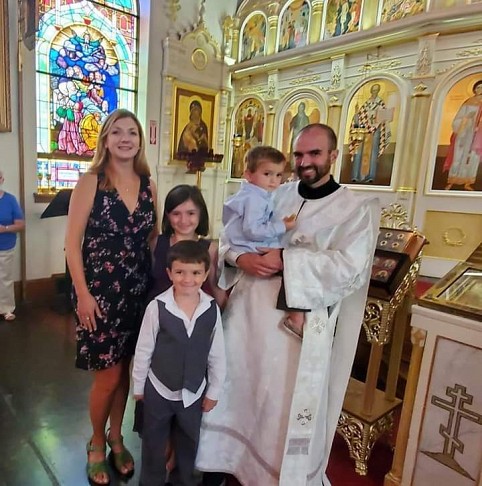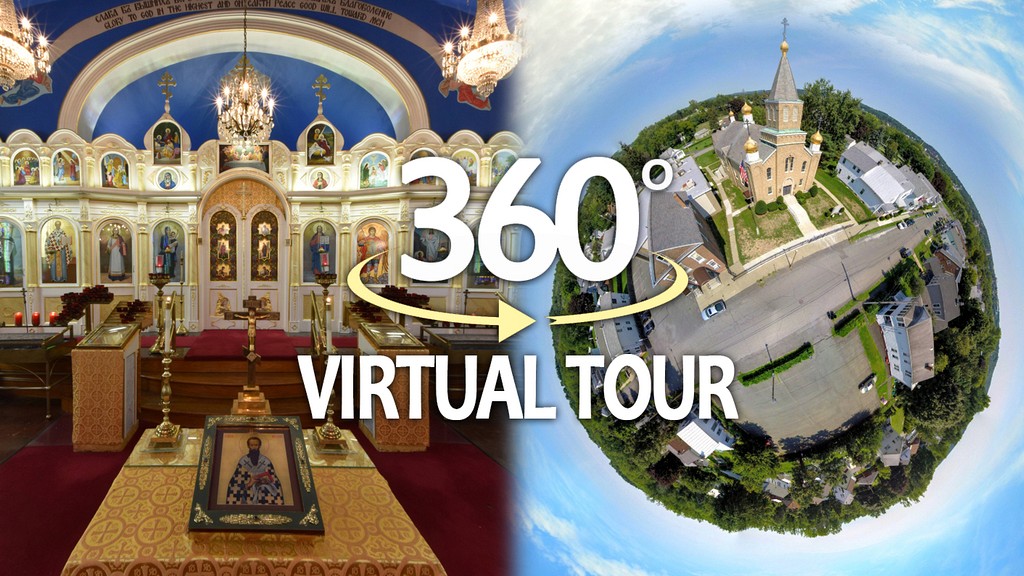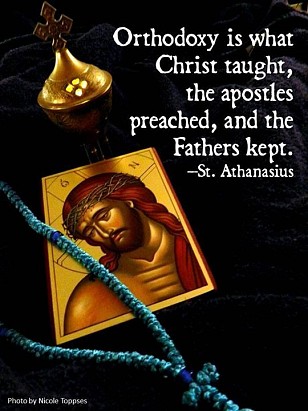All mail and correspondence should be sent to: 6 Lansing Ave Watervliet NY 12189-1845
Phone: (518) 273-6262 E-Mail: kaolsen2410@gmail.com Please do not send text messages. Thank you.
OUR MISSION/VISION STATEMENT
- ST. BASIL'S CHURCH WILL STRIVE TO GLORIFY GOD THROUGH
ORTHODOX CHRISTIAN WORSHIP,
SINCERE LOVE AND CARE FOR ONE ANOTHER,
AND SERVICE TO THOSE IN NEED AROUND US
St. Basil's, a parish of the Orthodox Church in America, is a Christian community of people from various ethnic and social backgrounds sharing a common commitment to the Lord, each other, and the Apostolic Faith. We warmly welcome all families, couples, and individuals who are looking for a deeper experience of the salvation offered in Jesus Christ. Come and see!
**All services are in English
Welcome! It is always an honor and a privilege when we have visitors worship with us at St. Basil’s. Please consider filling out a “Visitor’s Card” at the Candle Desk and joining us for Coffee Hour after the liturgy. Please keep in mind that we have certain traditions and practices that perhaps you may not be accustomed to. For example, modest and proper attire should be worn. We do not practice so-called "Eucharistic hospitality" or "inter-Communion." Only Baptized Orthodox Christians who have been to Holy Confession recently may receive Holy Communion. If you are an Orthodox visitor and plan to receive Holy Communion, please call Fr. Peter ahead of time (518-273-6262). ALL SERVICES ARE IN ENGLISH!
Sacraments are scheduled only by Baptized Orthodox Christians who go to church, go to Confession, and receive Holy Communion on a regular basis. Please note that in order to schedule a sacrament, you must be a member in good standing of St. Basil's. If you are a member of another Orthodox Church, you must bring a letter from the Parish Priest stating that you are a member in good standing of that parish and that he gives you his blessing to request a sacrament in our church. All Baptisms, Weddings and Funerals must be scheduled ahead of time with Fr. Peter. Please keep in mind that not all days and times are permitted. All canonical, traditional and liturgical practices of the Orthodox Church must be followed and adhered to. All Baptisms must be discussed with the parents of the child ahead of time, and all couples seeking to be wed in our church must themselves discuss this request with the priest. Thank you!
Confession is a soul-proftitable Mystery (Sacrament) of the Church. It is a gift to us from God in our struggle to be cleansed from our sins and to have inner peace in our hearts and souls. It is the practice of the Orthodox Church to go to Confession before receiving Holy Communion. If we are frequent communicants (receive Holy Communion on a weekly basis), it is the guidance of the Holy Synod of the Orthodox Church in America to go to Confession once a month. Confessions are generally heard at St. Basil’s on Saturday evening after Great Vespers. Confessions are generally not heard on Sunday morning before Divine Liturgy because there is little time, as the priest must do the proskomedia before the liturgy. Exceptions for worthy reasons can be made. Confessions are also heard on other days and times by appointment. Occasionally (RARELY) Confessions may not be scheduled on a particular Saturday. Please check our weekly bulletin for our schedule. Please see Fr. Peter if you would like further guidance or reading material explaining Confession, as well as how to prepare for Confession and Holy Communion.
Таинства назначаются только крещеным православным христианам, которые регулярно ходят в храм, исповедуются и причащаются. Обратите внимание, что для того, чтобы запланировать таинство (крещение ребенка, венчание, отпевание, и.т.д.); вообще Вы должны быть членом церкви Св. Василия. Если Вы являетесь членом другой православной церкви, Вам необходимо принести письмо от приходского священника, в котором будет указано, что Вы являетесь членом этого прихода и, что Вы получили благословение священника того храма, чтобы попросить у нас соблюдать таинство. Все крещения, свадьбы и похороны необходимо согласовывать заранее с о. Петром. Имеете ввиду, что не все дни и часы разрешены. Необходимо соблюдать все канонические, традиционные и литургические практики Церкви. Все крещения необходимо заранее обсудить с родителями ребенка. Спасибо за внимание!
St. Basil's celebrated its Parish Feast Day of St. Basil the Great with His Eminence, Archbishop MICHAEL on January 1, 2025. Serving with the parish rector, Archpriest Peter Olsen, was Priest Paul Fedoroff and parish deacon Jason Gagnon. Subdeacons were Benjamin Goes and Andrew Karlgut. A festive meal and fellowship was enjoyed by all in the parish hall.
Sunday, September 29, 2024, Fr. Peter led all the faithful in special prayers on the occasion of the first day of Church School. We prayed for our children and our teachers and we all (parents, grandparents, godparents, teachers, parishioners, and the children themselves) made a commitment in his or her own way to fulfill our Christian duty to teach our children and for them to study and learn to understand and love our Lord Jesus Christ and the Holy Orthodox Christian faith. Everyone was blessed with holy water after asking the Lord for His help and guidance and after we all solemnly made a commitment to nurture our children in the Faith.
We encourage you to visit the official website of the Diocese of NY and NJ, www.nynjoca.org
It includes information about various Diocesan activities: Teen Retreats, Altar Servers Retreats, Mens and Womens Retreats, Family Fun Days, the Bishop’s schedule, etc..
Diocesan Guidelines and other vital documents are also available. News about parish events and activities throughout the Diocese are also posted.
|
DOCUMENTS
|















